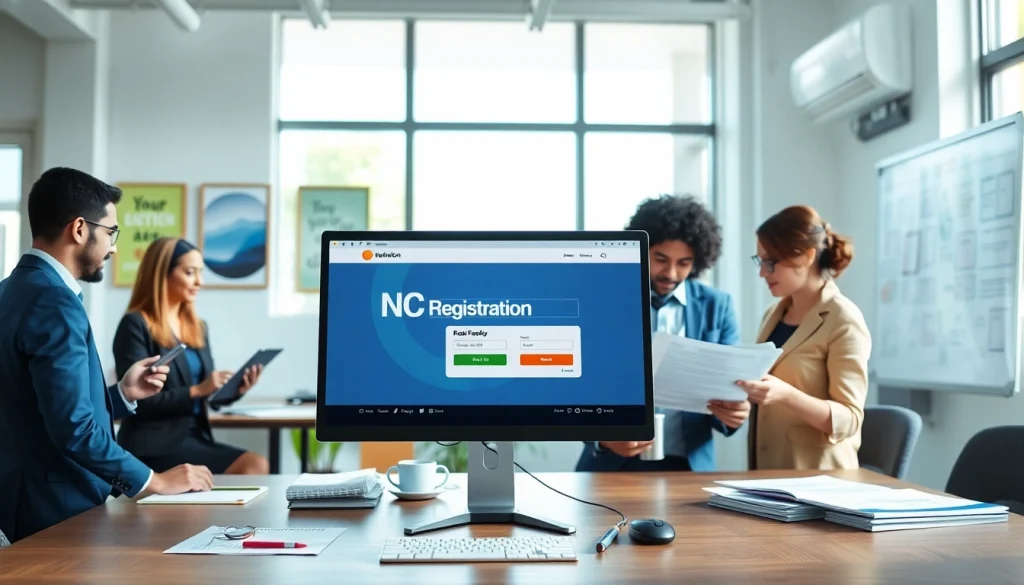
Understanding NCR Registration
What is NCR Registration?
NCR Registration is a formal process managed by the National Credit Regulator (NCR), primarily aimed at entities engaged in providing credit services in South Africa. This structured registration ensures that credit providers comply with established legal frameworks designed to protect consumers and encourage responsible lending practices. Successfully completing the NCR Registration is essential for any organization intending to operate legally in the financial services sector.
Importance of NCR Registration
NCR Registration serves several critical purposes:
- Legal Compliance: Registering with the NCR is a legal requirement for credit providers, ensuring that they operate within the boundaries of the National Credit Act (NCA).
- Consumer Protection: The registration process safeguards consumers by ensuring credit providers adhere to ethical lending practices, thereby minimizing predatory lending.
- Market Transparency: Registration creates a more transparent credit market, allowing consumers to make informed decisions about their financial options.
- Access to Industry Resources: Registered entities often have access to valuable industry insights, training, and resources that can enhance their operations.
Who Needs to Register?
Entities required to undergo NCR Registration include:
- Credit providers, such as banks and micro-lenders.
- Retailers extending credit services to consumers.
- Debt counselors and credit bureaus offering services to assist consumers with managing debt.
Understanding whether you fall under these categories is crucial for avoiding legal repercussions and ensuring you meet all regulatory standards. For more detailed information, refer to the NCR Registration guidelines.
Preparing for NCR Registration
Documentation Required for NCR Registration
The first step toward successful NCR Registration involves preparing the necessary documentation. The following documents are typically required:
- Business Registration Details: This includes your company’s founding documents, such as the Certificate of Incorporation or registration with the Companies and Intellectual Property Commission (CIPC).
- Proof of Address: A recent utility bill or other official documents showing the business premises address may be requested.
- Operational Framework: A detailed description of business activities and the services offered.
- Financial Statements: Recent financial statements or bank statements that reflect the financial viability of the business.
- Compliance Documents: Evidence that the business complies with relevant local, regional, and national regulations.
Common Challenges in NCR Registration
While the registration process is designed to be straightforward, several common challenges may arise:
- Incomplete Documentation: Submitting incomplete or incorrect documents can lead to delays. Ensure every required document is accurately prepared.
- Regulatory Complexity: Navigating the regulatory landscape may be daunting, especially for new entrants in the credit market.
- Lack of Awareness: Potential applicants often lack understanding of the documentation and regulatory requirements, leading to confusion.
Tips to Overcome Registration Obstacles
- Thorough Research: Familiarize yourself with the NCR’s requirements before initiating the registration process. Resources are available online.
- Consultation with Experts: Seek assistance from professionals or consultancies specializing in NCR Registration, which can guide you through the process smoothly.
- Prepare Audits: Conduct internal audits of your operational processes and documentation to ensure compliance and readiness for inspection.
Navigating the NCR Registration Process
Step-by-Step Registration Guide
Understanding the step-by-step process can streamline your NCR Registration journey:
- Preparation of Documents: Assemble all required documentation as outlined above.
- Online Application: Visit the NCR’s website and complete the online registration form, ensuring all fields are filled out accurately.
- Upload Documentation: Submit your prepared documents through the online portal.
- Pay Registration Fee: Pay any applicable registration fees as outlined by the NCR.
- Await Confirmation: After submission, monitor your email for confirmation of your application and any feedback from the NCR.
- Follow Up: If you do not receive confirmation within the promised time, follow up with the NCR to ensure your application is in process.
Online vs Offline NCR Registration
NCR Registration can typically be completed online, offering convenience and efficiency. However, offline submission options may also be available for those who prefer direct communication.
Online Benefits: Faster processing times and the ability to track the status of your application.
Offline Benefits: For businesses lacking reliable internet access, in-person assistance can help clarify any uncertainties.
Understanding Application Fees and Payments
Registration fees vary based on the type of entity registering and the services provided. It is crucial to consult the NCR’s official guidelines for up-to-date fee information. Payment methods typically include bank transfers or credit card payments through the NCR’s online portal.
Staying informed about potential changes in fee structures, especially when planning for budget and financial projections, is essential.
Post-Registration Considerations
After NCR Registration: What to Expect
Following successful registration, organizations will receive official documentation confirming their status. This registration remains valid as long as compliance standards are maintained.
Regular audits by the NCR may occur to ensure ongoing compliance with industry regulations, necessitating proper record-keeping and transparent operational practices.
Maintaining Your Registration Status
To retain your NCR Registration, consider the following best practices:
- Regular Compliance Checks: Conduct periodic reviews of internal policies and practices to ensure ongoing alignment with NCR requirements.
- Training and Development: Invest in training staff on compliance obligations and customer service standards.
- Reporting Obligations: Stay abreast of necessary reports and submissions required by the NCR, ensuring timely filing.
Benefits of Being NCR Registered
Organizations that complete and maintain their NCR Registration can enjoy numerous advantages:
- Legitimacy: Registration enhances credibility and builds trust with consumers and partners.
- Market Opportunities: Access to a wider range of customers and opportunities for partnerships within the credit sector.
- Consumer Loyalty: Demonstrating a commitment to ethical lending practices can enhance customer loyalty and brand reputation.
Resources for Successful NCR Registration
Useful Tools and Contacts for NCR Registration
Having access to relevant tools and contacts can significantly improve the registration experience. Consider the following resources:
- NCR Official Website: The NCR website offers extensive guidance, resources, and contact information for assistance.
- Industry Webinars: Attending webinars can provide valuable insights from industry experts and recent developments in regulations.
- Networking Opportunities: Engage with industry professionals at conferences and forums to exchange knowledge and gain insights.
Frequently Asked Questions about NCR Registration
New applicants often have recurring questions, including:
- How long does NCR Registration take? Processing time can vary, but applicants typically receive feedback within several weeks.
- What if my application is rejected? The NCR will provide feedback; applicants can amend any issues and resubmit.
- Is there support available during the application process? Yes, the NCR offers guidance and resources to assist applicants.
Online Communities and Support Groups
Engaging with online communities can offer peer support and shared experiences regarding NCR Registration:
- Social Media Groups: Platforms like Facebook and LinkedIn host groups-specific to credit providers where members share insights.
- Web Forums: Participating in forums allows for questions and discussions on NCR-related topics.






